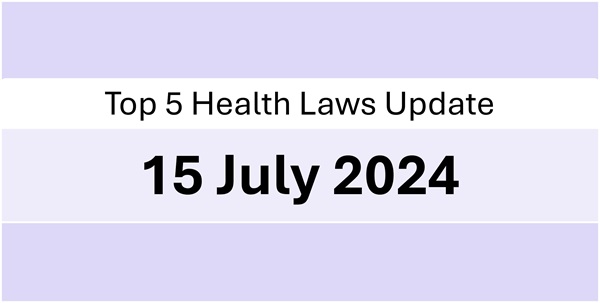1. India’s Consumer Affairs Ministry’s is proposing to amend labelling and packaging regulations for pre-packaged goods. Currently, certain large packages, like those exceeding 25 kilograms or liters, are exempt from displaying crucial information. This includes details like the maximum retail price (MRP), the date by which the product should ideally be consumed (best before date), who manufactured it, and where it came from (country of origin). Other exempt categories include cement, fertilizer, agricultural produce in 50 kg bags, and products destined for industrial or institutional use. The proposed amendment aims to close this loophole and ensure all these bulk packages are labelled clearly and consistently, just like retail products.
The proposed amendments are open for public consultation till 29th July 2024.
Source: bit.ly/4cZPiCG
2. Maharashtra state in India has reportedly announced a ban on sale of energy drinks with high caffeine content within 500-meter radius of schools. This directive aims to safeguard student health.
Source: bit.ly/467rxGj
3. India’s Karnataka Medical Council (“KMC”) has issued a show cause notice to a dermatologist alleging violation of Code of Medical Ethics, 2002 for advertising drugs/medicines on social media. The action on the part of KMC comes after it received a complaint from Indian Association of Dermatologist, Venerologists and Leprologists.
Source: bit.ly/3zLuAYY
4. India’s drugmakers are pushing the government to loosen price controls. They propose exempting all medicines under ₹5 and extending the exemption for patented drugs (currently 5 years) to 10 years. This comes amid rising costs for ingredients, prompting them to request a reduction in GST on these materials. The industry argues stricter controls stifle research and development.
Source: bit.ly/3S7oqIF
5. Indian Supreme Court has rejected Doctor’s plea for improved security, which is filed by a Delhi Medical Association. The apex court was hearing the DMA’s petition which also sought directions to the authorities to ensure adequate security at hospitals and medical centres to prevent attacks on doctors and healthcare workers by patients’ relatives and others. The Apex Court stated that currently laws exist to deal with such instances.
Source: bit.ly/3Ln9Fh9

